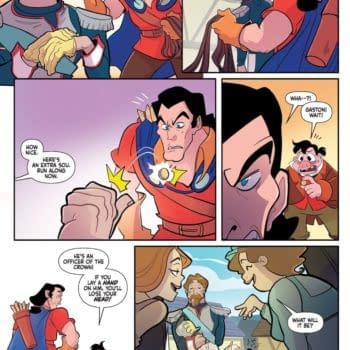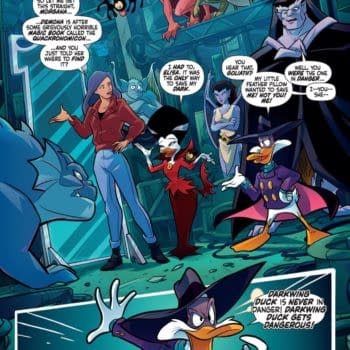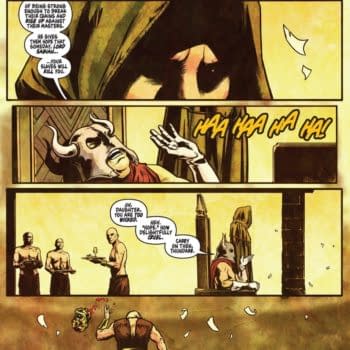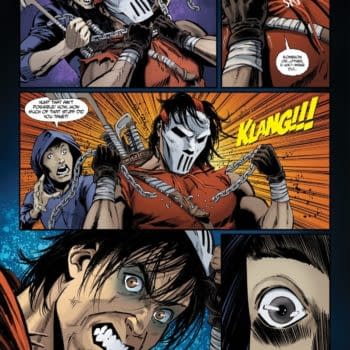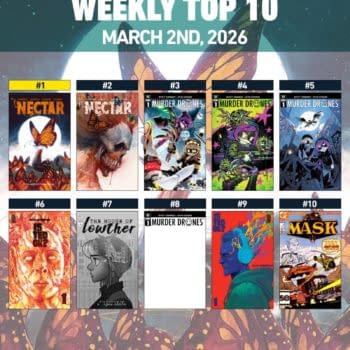Posted in: Comics, Recent Updates | Tagged: Comics, entertainment, Marvel Comics, The Fantastic Four
The Fantastic Four Have Disappeared… Or Have They?
Brian M. Puaca writes for Bleeding Cool:
The Marvel Age began with the publication of the Fantastic Four #1 in 1961. Before the appearance of the Fan Four, Marvel — or Atlas, or Timely, or whatever Martin Goodman was calling his company that year — was publishing a number of unremarkable fantasy, suspense, and adventure comic books. The Fantastic Four played a key role in "kick-starting the Marvel Universe." Indeed, it "put Stan Lee and Jack Kirby on the map." The self-described "World's Greatest Comic Magazine" (by issue 4, anyhow) marked the arrival of a new generation of "three-dimensional characters" with whom readers could identify. At least, this is the story according to the description of the premiere issue on the Marvel Unlimited website.

So the Marvel website should feature the Fan Four prominently, right? Heck, even the Marvel Unlimited folks recognize the importance of the title. Go ahead and hop over to Marvel's site. See the Fan Four there front and center welcoming fans? No? But there are the Avengers. And Daredevil. And…Carnage? Really? Well, I am sure if we check out what cool items are available as gifts for that Human Torch fan in your family, we'll find a bunch of neat things. Let's click on "Shop" and "Characters." Hmmm…Black Widow? Guardians of the Galaxy? No Fantastic Four. How about a shirt? There are 68 of them in the adult section, so surely…Nope. Not a one. Not one Fan Four shirt. Not even a Marvel shirt where the Fan Four appear. But there are two nice Ghost Rider shirts for women that you'll want to consider. Nothing in toys. And the only item in Home Decor is a Mac Book sleeve that includes the Thing. I'll take it! Wait. The link is dead. And there's a powerful metaphor.
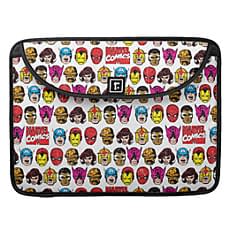
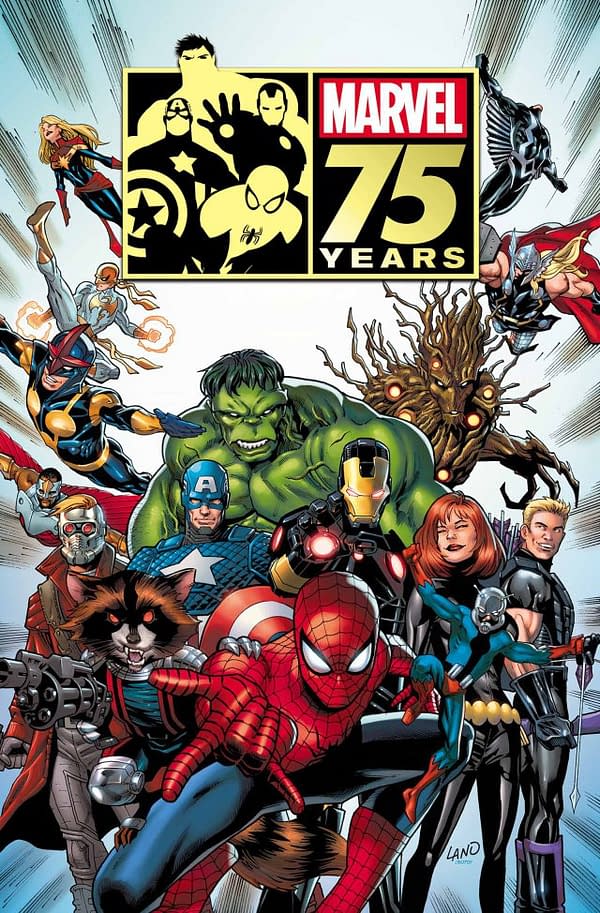
This concerted effort to deemphasize the Fantastic Four (and to a lesser extent, the X-Men) has been ongoing now for more than a year. It is one that can be seen in a number of examples and points toward a coordinated effort to manipulate historical memory of the Marvel Universe. An early example comes from Marvel's 75th anniversary magazine, published as a free promotional giveaway in September 2014. The company sought to commemorate its long history dating from the appearance of Marvel Comics #1 in 1939. The cover of the standard version of the magazine prominently featured Marvel's greatest heroes, such as Spider-Man, Iron Man, Hulk, and Captain America. It also includes Black Bolt, Iron Fist, Nova, and Ant-Man. No Fan Four. No X-Men. (While limited Alex Ross variant covers dedicated to the Fantastic Four and X-Men were also released, they have been rather hard to come by. My friendly neighborhood comic shop didn't have any available last fall.) On a publication celebrating the history of Marvel Comics, it is hard to imagine that this is an accident.
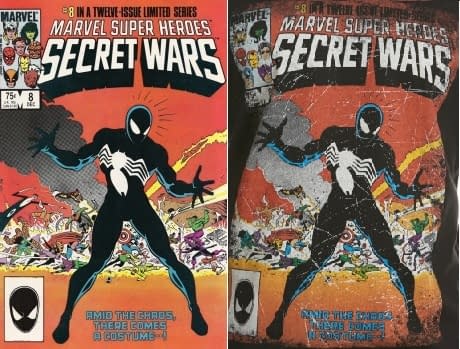
The list actually goes on and on, although it seems that there is already enough evidence to suggest an intentional strategy of removing these characters from the public eye. New Marvel sketch cards have been released without any members of the Fantastic Four or their supporting characters (such as Dr. Doom, the Silver Surfer). Recently, cartoonist Mike Mitchell revealed that he was forced to pull works that display the characters from a public exhibition. And did I already mention that the "World's Greatest Comic Magazine" had been canceled as of issue 645?
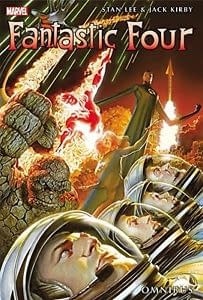
The first place to look, as already mentioned, is Marvel Unlimited. Most of the Fantastic Four issues Marvel has published over the past fifty-plus years are there to be read and enjoyed. This includes all of the Lee and Kirby issues and almost every one of the first 300 issues. A second place to look would be in new hardcover and trade offerings from Marvel. Fans of Marvel's hardcovers were excited to see the release of Fantastic Four Omnibus 3 in late April, which included thirty of the later issues of the Lee/Kirby years. With a $99.99 price tag, it is unlikely that casual readers would pick this up (or even find it on the shelves of their local bookstore). So, too, has Marvel continued to publish its Marvel Masterworks line of Fantastic Four books (with the newest edition released in June retailing for $75.00) and even reprinted the first volume (containing issues 1-10) earlier this year. Finally, Marvel has published four Epic paperback collections (usually with $34.99 cover prices) since the start of 2014. These books usually contain about 15-20 issues and, again, appeal to the most committed fans.
And so what's the likely impact of this dual strategy for Marvel? Will it in fact succeed in not promoting the Fantastic Four film and eventual DVD release? Probably, but there's no way to really know. Would someone who saw the Marvel 75th anniversary cover last year and noticed the Thing been more likely to go see the movie? It's unlikely. And would someone who purchased the Secret Wars shirt and caught a glimpse of the Human Torch been clued into the film's August release? Doubtful. This concerted effort to deemphasize and then erase the Fan Four from the public consciousness seems to be rather sad and petty. At the end of the day, one could argue that this strategy was enacted more out of spiteful reasons than financial ones.
And will the strategy disillusion the hardcore fans who, Marvel hopes, will subscribe to Marvel Unlimited and purchase the high price hardcovers and trades? This question is a bit trickier. Maybe not. But the more publicity these actions receive, the more likely that committed fans will become frustrated. Marvel has tried to avoid discussing these moves and, when pushed, offered defensive and evasive answers. Would devoted fans of the Fantastic Four become so upset by these decisions that they choose not to purchase the expensive products Marvel continues to produce? It's unlikely, but possible. Many Marvel fans can't buy a shirt, a statue, or a poster of their favorite characters. Fan Four toys for their kids or accessories for their office are out of the question. This likely irks many of those who love the characters. And one has to wonder if the trade-off is worth it. Wouldn't the spending of committed fans — and even the general public — on merchandise that included the Fantastic Four off-set any possible unintended promotional value Marvel's products might provide to the film (a figure that would be impossible to quantify anyhow)? The answer is likely yes. Thus, not only is there ill will generated by this decision, there are lost profits. And rare is the example where a company chooses to earn less money than it otherwise might. Even Reed Richards would have a hard time figuring that one out.
Brian M. Puaca is an associate professor of history at Christopher Newport University in Newport News, Virginia, where he teaches a course on the history of comic books and American society. He can be reached at bpuaca@cnu.edu.










